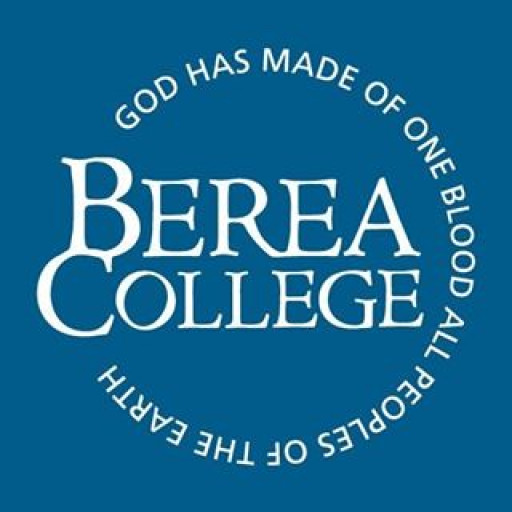The Bachelor of Science in Health Information Management at Rutgers University-Camden prepares students for a dynamic and rapidly evolving healthcare industry by integrating core principles of health sciences, information technology, and management. This rigorous undergraduate program is designed to equip students with the essential skills needed to effectively manage health information systems, ensure data privacy and security, and support clinical decision-making processes. Throughout the program, students gain comprehensive knowledge in medical coding, health data analytics, electronic health records, healthcare reimbursement, and compliance regulations such as HIPAA. The curriculum combines theoretical coursework with practical experiences, including internships and hands-on training, to foster real-world readiness. Students also develop critical thinking, problem-solving, communication, and leadership skills, which are vital for advancing in various healthcare settings such as hospitals, clinics, insurance companies, public health organizations, and healthcare software companies. Rutgers-Camden’s program emphasizes ethical and legal aspects of health information management, preparing graduates to navigate complex regulatory environments and uphold data integrity and confidentiality. The program also benefits from experienced faculty who are experts in health informatics, medical coding, and healthcare management, providing mentorship and industry insights. Upon graduation, students are well-prepared for certification exams such as the Registered Health Information Administrator (RHIA), which can enhance career opportunities and professional growth. The Rutgers University-Camden Bachelor of Science in Health Information Management offers a comprehensive education that bridges healthcare knowledge with technological expertise, ensuring graduates are equipped to improve patient care, optimize healthcare operations, and contribute to innovations in health information technology. This program is ideal for students interested in pursuing a meaningful career at the intersection of healthcare and information management, contributing to the advancement of efficient, secure, and patient-centered healthcare delivery systems nationwide.
The Health Information Management (HIM) program at Rutgers University-Camden prepares students to excel in the vital field of managing healthcare data and information systems. This comprehensive curriculum combines foundational knowledge in health sciences, information technology, and management principles to equip graduates with the skills necessary for a successful career in health information management. The program emphasizes the importance of accurate data collection, analysis, and safeguarding patient information, ensuring compliance with legal and ethical standards within the healthcare industry.
Students in the program will gain a thorough understanding of medical coding and classification systems, electronic health records (EHR), and health data analysis techniques. The curriculum covers key topics such as healthcare delivery systems, healthcare informatics, healthcare reimbursement, law and ethics in health information, and health data management. Emphasis is also placed on developing skills in health information technology, understanding healthcare regulations, and implementing quality improvement initiatives.
The program combines classroom instruction with practical experiences through internships and hands-on training, allowing students to apply theoretical knowledge in real-world healthcare settings. This experiential learning prepares graduates to meet the demands of modern healthcare organizations, including hospitals, clinics, insurance companies, public health agencies, and health IT companies.
Graduates of the HIM program are well-positioned to pursue careers as health information managers, coding specialists, health data analysts, compliance officers, and health IT project managers. The program also prepares students for certification exams such as the Registered Health Information Technician (RHIT) and Registered Health Information Administrator (RHIA), which enhance employment prospects and professional growth.
Rutgers University-Camden’s Health Information Management program is committed to fostering a diverse and inclusive learning environment, encouraging students to become ethical professionals dedicated to improving healthcare quality and patient safety through effective information management. Upon completion of the program, graduates will be equipped with the knowledge, skills, and credentials necessary to make a meaningful impact in the evolving landscape of healthcare technology and data management.
The Bachelor of Science in Health Information Management at Rutgers University-Camden requires completion of a total of 120 credit hours, including general education, core coursework, and elective courses. The program curriculum is designed to provide students with a comprehensive understanding of healthcare data management, health informatics, coding systems, legal and ethical issues in healthcare, and healthcare quality improvement. Students are required to complete foundational courses such as Anatomy and Physiology, Introduction to Health Information Management, Healthcare Delivery Systems, and Medical Coding and Classification. Advanced courses include Health Data Analytics, Electronic Health Records, Healthcare Privacy and Security, and Healthcare Law and Ethics. Alongside classroom instruction, students participate in clinical practicums or internships to gain hands-on experience in healthcare settings. To graduate, students must also demonstrate proficiency in health information technology tools and adhere to industry standards for data security and patient confidentiality. The program emphasizes developing analytical skills, attention to detail, and knowledge of legal and regulatory frameworks governing health information. For admission, applicants must meet the university's undergraduate entry requirements, which include a high school diploma or equivalent, satisfactory GPA, and standardized test scores. The program prepares students for certification examinations such as the Certified Health Data Analyst (CHDA) and the Registered Health Information Administrator (RHIA) to enhance employment prospects. Upon graduation, students are equipped to pursue careers in hospital health information departments, outpatient facilities, insurance companies, healthcare consulting firms, and government agencies. The curriculum is regularly reviewed and updated to align with current industry standards and technological advances in health informatics.
The Bachelor of Science in Health Information Management at Rutgers University-Camden offers a comprehensive overview of the financial aspects related to pursuing this degree. Tuition fees for in-state students are approximately $13,000 per year, while out-of-state students pay around $24,000 annually. Additional costs include mandatory fees such as registration, technology, and laboratory fees, which amount to approximately $2,500 per year. Students are encouraged to explore financial aid options, including federal and state grants, scholarships, and work-study programs, to offset the costs of education. Rutgers University-Camden participates in federal student aid programs, and applicants should complete the Free Application for Federal Student Aid (FAFSA) to determine eligibility for need-based assistance. Merit-based scholarships are also available for high-achieving students, with application requirements and deadlines published on the university's financial aid webpage. Moreover, students have access to payment plans that allow for semester-based payment schedules, easing financial planning. The university provides resources for financial literacy, including counseling services to help students understand and manage their educational expenses effectively. In addition to tuition and fees, students should budget for textbooks, which typically cost around $1,200 per year, and other personal expenses. Internships and cooperative education opportunities may offer stipends or remuneration, providing partial financial support during practical training components. For international students, additional costs such as medical insurance and visa-related fees apply. The university's financial aid office offers personalized guidance to assist students in navigating available funding options and understanding the total cost of attendance. Overall, Rutgers University-Camden strives to ensure that financial considerations do not hinder students from pursuing a degree in Health Information Management by providing a variety of funding opportunities and supportive services.
The Bachelor of Science in Health Information Management at Rutgers University-Camden prepares students for a dynamic and vital field that bridges healthcare and information technology. This program is designed to equip students with the skills necessary to manage health data, ensure the accuracy and security of medical records, and support healthcare quality improvement initiatives. The curriculum combines coursework in health sciences, information technology, data management, and healthcare systems, providing a comprehensive education that addresses the evolving needs of the healthcare industry. Students learn about electronic health records (EHRs), health information systems, coding and classification systems, healthcare data analysis, and regulatory and ethical issues related to health information management. Emphasis is placed on understanding legal and ethical standards to uphold patient privacy and data security, as well as on developing competencies in health informatics software and database management. Practical experience is integrated through internships, collaborative projects, and case studies, allowing students to apply theoretical knowledge in real-world healthcare settings. Graduates of this program are prepared for various roles including health information technician, clinical data analyst, medical records manager, and health information technician, working in hospitals, clinics, insurance companies, government agencies, and private healthcare organizations. The program also prepares students for certification as Registered Health Information Administrators (RHIA), a credential highly valued in the field for demonstrating expertise and professionalism. Overall, the Rutgers Health Information Management program aims to produce well-rounded professionals capable of improving healthcare delivery through effective health information management and technology solutions. The program's faculty are experienced professionals in healthcare and information technology, ensuring students receive a high-quality education grounded in current industry practices and standards.







